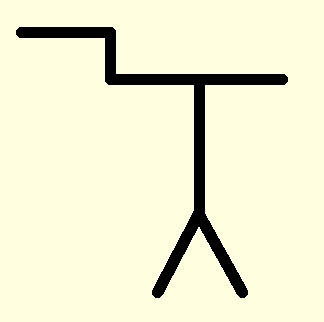Our most loyal readers may have experienced some technical difficulties with this blog recently. I switched to beta, which Blogger has been asking me to do for some time now. However, once I switched, the blog was all messed up. I do believe that Blogger promised that this wouldn't happen; but since my particular problem was not on their list of topics in the help section, I ended up just deleting the blog and starting over again.
The beta version really is nicer, but I do wish that the transition were more seamless!
All of the original posts are still here except for the riddle that Doctor Clause posted. You are welcome to re-post that, Doctor.
Unfortunately, I was not able to duplicate the comments that had been on the site. Please comment freely once again! :)
Sorry about the confusion.
And just a reminder: I don't have tons of time to post regularly; but if you would like to join in on the thrill of grammar, just send me an e-mail to be made a member of this blog and post to your heart's content!
Sunday, November 19, 2006
Monday, November 6, 2006
Lay vs. lie
The following is an excerpt from the book
The Careful Writer: A Modern Guide to English Usage
Lay is a transitive verb and never anything else except in the meaning of to deposit eggs ("The hen is laying") and in a few nautical terms (lay aloft.) For those whose grammar lessons are far behind them or forever incomprehensible, let it be explained that a transitive verb is one that acts as a transmission belt, conveying action or influence from a subject to an object. The present tense is lay ("Watch as I now lay this book on the table"). The past tense is laid ("He laid his watch carefully on the desk"). The present participle is laying ("He is laying his plans for a medical career"). The past participle is laid ("He had laid his plans before entering college").
Lie is an intransitive verb and never anything else. An intransitive verb is one that confines the action to the subject; it does not transmit the action or influence to an object. The present tense is lie ("The Azores lie in mid-Atlantic"). The past tense is lay ("He lay in pain waiting for help"). The present participle is lying ("He is lying in bed"). The past participle is lain ("He had lain there for several hours").
The most common errors are, first, the use of the forms of the transitive lay where forms of lie are required-- "The pencil was laying on the table" (never, unless the pencil were depositing eggs) or "Women laid down in the roadway to halt the Soviet tanks" (No, down isn't laid; it comes off a duck) --and second, the use of laid instead of lain for the participle form of lie-- "He had laid there for several hours."
These confusions are not infrequent, but the errors can only be classed as illiterate.
The Careful Writer: A Modern Guide to English Usage
Lay is a transitive verb and never anything else except in the meaning of to deposit eggs ("The hen is laying") and in a few nautical terms (lay aloft.) For those whose grammar lessons are far behind them or forever incomprehensible, let it be explained that a transitive verb is one that acts as a transmission belt, conveying action or influence from a subject to an object. The present tense is lay ("Watch as I now lay this book on the table"). The past tense is laid ("He laid his watch carefully on the desk"). The present participle is laying ("He is laying his plans for a medical career"). The past participle is laid ("He had laid his plans before entering college").
Lie is an intransitive verb and never anything else. An intransitive verb is one that confines the action to the subject; it does not transmit the action or influence to an object. The present tense is lie ("The Azores lie in mid-Atlantic"). The past tense is lay ("He lay in pain waiting for help"). The present participle is lying ("He is lying in bed"). The past participle is lain ("He had lain there for several hours").
The most common errors are, first, the use of the forms of the transitive lay where forms of lie are required-- "The pencil was laying on the table" (never, unless the pencil were depositing eggs) or "Women laid down in the roadway to halt the Soviet tanks" (No, down isn't laid; it comes off a duck) --and second, the use of laid instead of lain for the participle form of lie-- "He had laid there for several hours."
These confusions are not infrequent, but the errors can only be classed as illiterate.
Monday, October 23, 2006
Thursday, October 19, 2006
Sunday, September 10, 2006
Friday, September 1, 2006
Subscribe to:
Posts (Atom)



